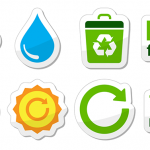
Sustainable Cleaning: Ingredients and Processes with Less Environmental Impact
The market for sustainable or “green” cleaning products among commercial end users has been growing, and increased regulations by states are expected to continue to drive interest and sales of these products. Sustainable cleaning includes professional cleaning products made with renewable, biodegradable ingredients that are not tested on animals, do not contain harmful ingredients, and are sold in







